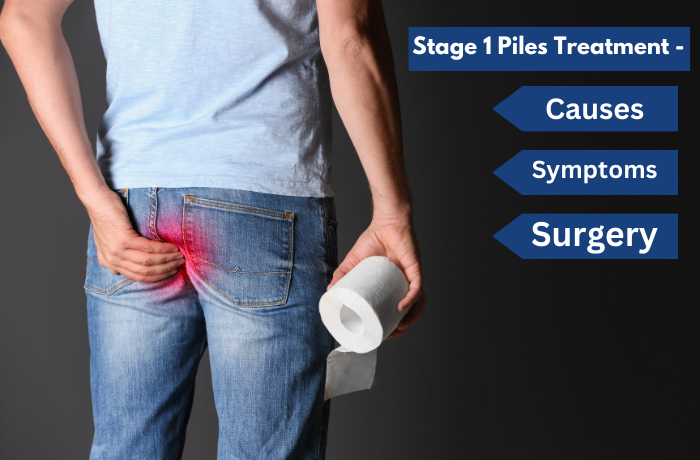
Stage 1 Piles Treatment – Causes, Symptoms, and Surgery
Piles, also known as hemorrhoids, are swollen blood vessels in the rectal area. They are common and can cause discomfort, especially in their advanced stages. Stage 1 piles is the earliest stage and can often be managed with simple treatments. Let’s take a closer look at the causes, symptoms, and possible treatments for stage 1 piles.
Causes of Stage 1 Piles
Several factors can contribute to the development of piles, including:
- Constipation: Straining during bowel movements puts extra pressure on the veins in the rectum, leading to piles.
- Low-fiber diet: A diet lacking in fiber can result in harder stools, which increases the chances of developing piles.
- Sedentary lifestyle: Lack of movement and sitting for long hours can worsen the condition.
- Obesity: Excess body weight adds pressure to the rectal area, contributing to piles.
- Pregnancy: Increased pressure on the pelvic area during pregnancy can also cause piles.
- Chronic diarrhea: Constant bowel movements can irritate the rectal area, leading to piles.
Symptoms of Stage 1 Piles
Stage 1 piles are mild and may not cause severe pain or discomfort, but some common symptoms include:
- Itching in and around the anus.
- Mild discomfort during bowel movements.
- Small amounts of blood on the toilet paper or stool.
- Swelling around the anus.
At this stage, piles are not visible outside the anus, and symptoms are typically manageable.
Treatment Options for Stage 1 Piles
The good news is that stage 1 piles can often be treated with simple lifestyle changes, non-invasive procedures, and, in rare cases, minor surgery.
- Lifestyle Changes:
- Increase fiber intake: Eating more fruits, vegetables, and whole grains can soften stools and reduce straining.
- Stay hydrated: Drinking plenty of water can also prevent constipation.
- Exercise regularly: Regular movement can reduce pressure in the lower body and improve bowel health.
- Medications:
- Over-the-counter creams and ointments: These can help reduce itching and discomfort.
- Stool softeners: They make bowel movements easier and less painful.
- Non-Surgical Procedures:
- Rubber band ligation: In this procedure, a rubber band is placed around the base of the hemorrhoid to cut off its blood supply, causing it to shrink.
- Surgical Option (Rare for Stage 1): In rare cases where other treatments are not effective, minor surgery might be required. The most common surgical procedures include:
- Hemorrhoidectomy: A procedure to remove the hemorrhoids.
- Stapled hemorrhoidopexy: This surgery staples the hemorrhoids back into place and reduces their blood supply.
Preventing Piles from Getting Worse
To prevent piles from advancing to more severe stages, follow these simple tips:
- Don’t delay bowel movements: Going to the bathroom when you feel the urge can reduce straining.
- Avoid sitting for long periods: Especially on the toilet, as it increases pressure on the veins in the rectal area.
- Practice good hygiene: Gently clean the anal area to prevent irritation.
If you’re looking for expert care and advice for Piles Treatment in Rasta Peth Pune, you can visit Dr. Suresh Jain at the Digestive Endoscopy Clinic. He offers comprehensive care for piles and other digestive issues.
By understanding the causes, symptoms, and treatments for stage 1 piles, you can take the necessary steps to manage your condition effectively and prevent further complications.
